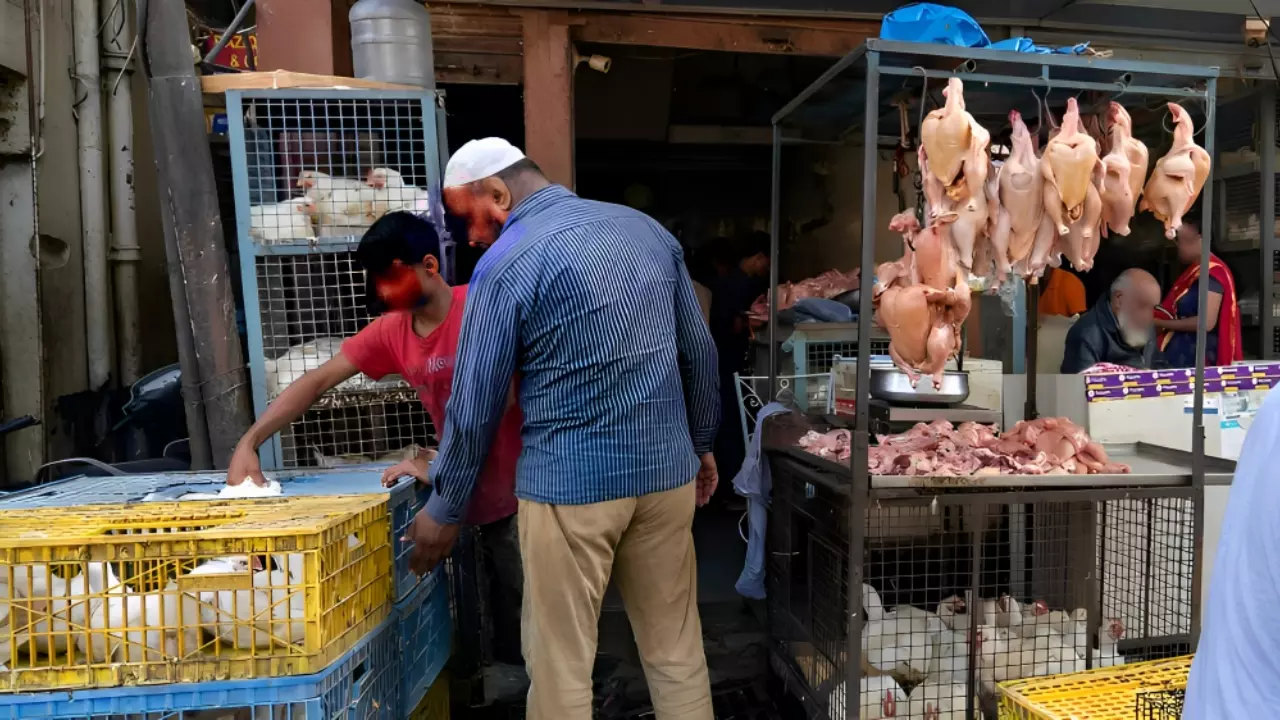- Home
- /
- High Courts
- /
- Rajasthan High Court
- /
- Temple In Market Accessible To...
Temple In Market Accessible To Public Is Not Private, Ban On Operating Meat Shops Around It Applies: Rajasthan High Court
Nupur Agrawal
11 Sept 2025 12:51 PM IST
Rajasthan High Court dismissed a petition filed against cancellation of license of meat shops established within 50 meters of places of worship in accordance with Clause 4 of the SOP dated March 22, 2021, issued under Section 269 read with Section 340 of the Rajasthan Municipalities Act, 2009 (“the Act”).The bench of Justice Anoop Kumar Dhand denied the argument put forth by the petitioner...
Rajasthan High Court dismissed a petition filed against cancellation of license of meat shops established within 50 meters of places of worship in accordance with Clause 4 of the SOP dated March 22, 2021, issued under Section 269 read with Section 340 of the Rajasthan Municipalities Act, 2009 (“the Act”).
The bench of Justice Anoop Kumar Dhand denied the argument put forth by the petitioner of the temple being a private property of few shopkeepers, and opined that every temple was a public property unless proved otherwise, and since the temple in question was situated in an open area, accessible to all, it was construed as a public temple.
Petitioners were granted license to run meat shops, when a show cause notices were issued in 2024, followed by an order passed in 2025 by which their licenses were cancelled on the ground that the shops were situated within 50 meters of a temple, which was contrary to the SOP.
This order was unsuccessfully challenged before the District Collector, Jaipur, and hence petition was filed before the Court.
The petitioners argued that firstly, the SOP had no statutory force, and secondly the temple was a personal temple, and not a public temple registered with the Devasthan Department.
On the contrary, it was argued by the respondents that the SOP was issued under Section 269 read with Section 340 of the Act. Further, the temple was not situated insider a house, rather in an open area of a market and was regularly used by public for worshipping. Hence, it could not be treated as a private temple.
After hearing the contentions, the Court held that Clause 4 of the SOP was aimed at maintaining harmony and respect towards places of worship and educational institutions like schools. Hence, in case of its violation, authorities were empowered to cancel the license. Also, it was highlighted,
“Even otherwise, as per Regulation 2.1.2(1)(5) under Chapter 2 read with Schedule-4 under Part IV of the Food Safety and Standards (Licensing and Registration of Food Businesses), Regulations 2011, the minimum distance between the licensed meat shop and any place of worship should not be less than 50 meters.”
Further, the Court rejected the argument of the temple being a private property, and held that temple meant a place where anyone could worship and was accessible to public at large, irrespective of by whatever name it may be known. Hence, every temple was a public property unless proved otherwise.
If a temple was situated in an open area and was accessible to the public at large, like in the present case, by any stretch of imagination, it could not be treated as a private temple of those shopkeepers whose shops were situated in front of that temple.
The Court stated that unless the validity of Clause 4 of the SOP was challenged by the petitioner, and the same was quashed, no interference was needed.
Accordingly, the petitions were dismissed.
Title: Aayush Narania v State of Rajasthan & Ors., and other connected petitions
Citation: 2025 LiveLaw (Raj) 305



